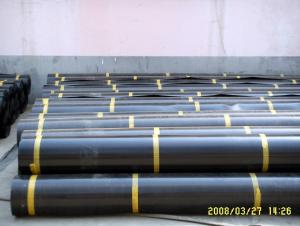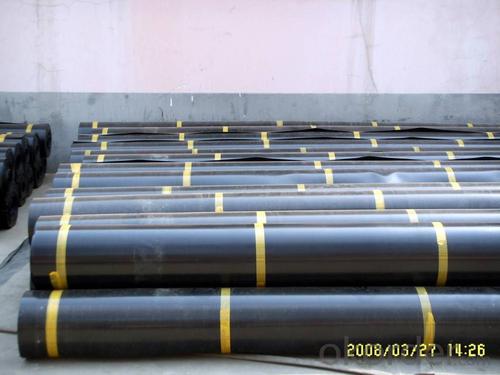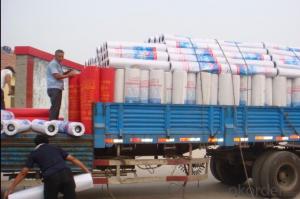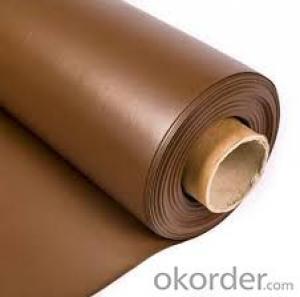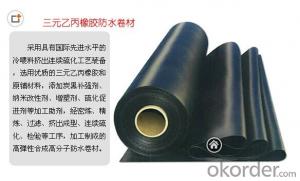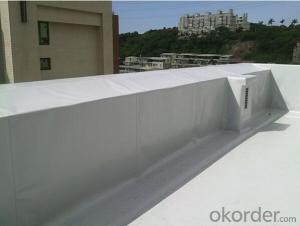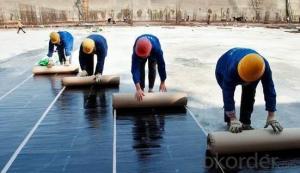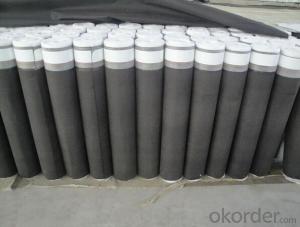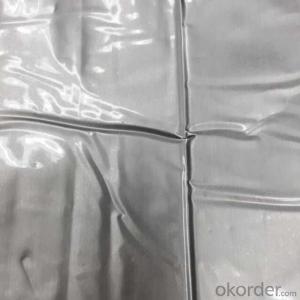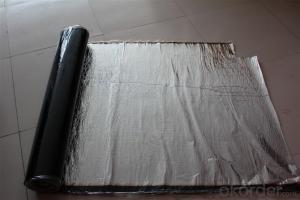Self-adhesive Waterproofing Membrane
- Loading Port:
- China Main Port
- Payment Terms:
- TT or LC
- Min Order Qty:
- 2000 M2 m²
- Supply Capability:
- Above 10000000M2 Per Year m²/month
OKorder Service Pledge
Quality Product, Order Online Tracking, Timely Delivery
OKorder Financial Service
Credit Rating, Credit Services, Credit Purchasing
You Might Also Like
Property Result
Pressure,Mpa 0.2
Keeping time, min 120, no water infiltration
Tensile strength, N/50mm ≥ 130
Elongation at break % ≥ 450
Flexibility -20℃,Φ20mm,3S,180° No cracks
Shearing performance N/mm Between membrane&membrane 2.0 or crack at outside
Between membrane&Alu.
Stripping off performance, N/mm 1.5 or crack at outside
Resistance to punching No leakage
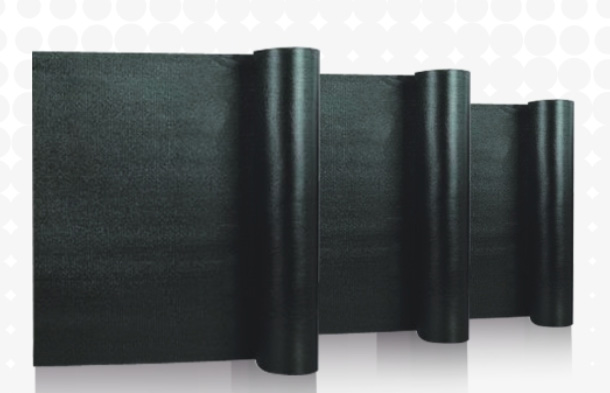
- Q: Is a waterproofing membrane necessary for all types of construction?
- Not all types of construction require a waterproofing membrane, but it is highly recommended for certain projects. The necessity of a waterproofing membrane depends on various factors, including the construction's location, purpose, materials used, and potential exposure to water or moisture. In areas where water intrusion is common, such as basements, foundation walls, roofs, bathrooms, and high humidity areas, a waterproofing membrane is crucial. These areas are prone to water damage, which can lead to structural problems, mold growth, and degradation of building materials. Waterproofing membranes create a reliable barrier against water penetration, preventing any damage from moisture. They are typically made from materials like asphalt, rubber, or polyethylene, and are applied as a thin layer to create a watertight seal. Some membranes also provide insulation benefits, improving the construction's energy efficiency. While a waterproofing membrane may increase construction costs, its advantages outweigh the expenses in the long term. It safeguards the building's structural integrity, extends its lifespan, and prevents costly repairs or renovations due to water damage. However, not all construction projects require a waterproofing membrane. For instance, buildings in arid regions or areas with little rainfall may not need extensive waterproofing measures. Likewise, certain construction types, like open-air structures or temporary installations, may not require a waterproofing membrane. Ultimately, the decision to include a waterproofing membrane in a construction project should be based on a thorough evaluation of the specific conditions, risks, and project requirements. Seeking guidance from a professional architect or engineer can help determine the necessity of a waterproofing membrane and the most suitable type for the construction.
- Q: 1.2 thick synthetic polymer waterproofing membrane two weight how to count
- Different materials of the coil its unit weight is not the same, and some polymer membrane with self-adhesive or empty shop, without adhesive, so according to the specific material and paste method for calculation, the above calculation, the exact calculation can be based on the actual The material was measured for its weight per unit weight and then the lap coefficient and binder were calculated.
- Q: How does a waterproofing membrane prevent water penetration?
- A waterproofing membrane prevents water penetration by creating a physical barrier between the water source and the surface it is applied to. This membrane is usually made of materials that are impermeable to water, such as synthetic polymers or bitumen. When applied correctly, the membrane adheres tightly to the surface, forming a continuous and seamless layer that prevents water from seeping through. Additionally, waterproofing membranes are designed to withstand environmental conditions and resist the damaging effects of water pressure, temperature changes, and UV radiation. They are typically flexible and can accommodate structural movements without compromising their integrity. This flexibility ensures that the membrane remains intact and prevents any gaps or cracks that water could penetrate. Furthermore, waterproofing membranes often contain additives or technologies that enhance their water resistance properties. These could include chemical compounds that repel water, such as hydrophobic additives, or self-sealing capabilities that allow the membrane to repair itself if it becomes punctured or damaged. In summary, a waterproofing membrane prevents water penetration by creating a durable, impermeable, and continuous barrier that resists water pressure, environmental factors, and structural movements. It ensures that the surface underneath remains dry and protected from potential water damage.
- Q: Is a waterproofing membrane resistant to root penetration?
- A waterproofing membrane is usually able to resist root penetration. Its purpose is to create a barrier that prevents water from seeping through and causing damage to the underlying structures. These membranes are typically made from durable materials like modified bitumen, PVC, or EPDM, which are highly resistant to root penetration. Some membranes are even specially manufactured with properties that deter root growth, providing an extra layer of protection against potential root damage. Root-resistant waterproofing membranes may contain additives that discourage root growth, or they may have a thicker and stronger composition that can withstand root penetration. However, it is important to note that while waterproofing membranes are generally effective in preventing root penetration, proper installation and regular inspection are necessary to ensure their long-term integrity.
- Q: Can a waterproofing membrane be applied to uneven surfaces?
- Yes, a waterproofing membrane can be applied to uneven surfaces. However, the level of success and effectiveness may vary depending on the severity of the unevenness. It is important to properly prepare the surface by removing any loose debris, filling in large gaps or holes, and smoothening out any high points or ridges. There are also certain types of waterproofing membranes that are more flexible and can conform to uneven surfaces better than others. It is recommended to consult with a professional waterproofing contractor who can assess the condition of the surface and recommend the most suitable waterproofing membrane for the specific unevenness.
- Q: Can a waterproofing membrane be used in areas with high levels of salt or saltwater exposure?
- Yes, a waterproofing membrane can be used in areas with high levels of salt or saltwater exposure. However, it is important to choose a membrane specifically designed to withstand such conditions. Certain waterproofing membranes are specifically formulated to be resistant to salt and saltwater exposure, preventing any potential damage or degradation. These membranes are typically made with materials that are highly resistant to corrosion and have enhanced durability. It is crucial to consult with a professional to ensure the correct type of waterproofing membrane is selected for high salt or saltwater exposure areas to ensure long-term effectiveness and protection.
- Q: Can a waterproofing membrane be used for stadiums or sports fields?
- Stadiums or sports fields can benefit from the use of a waterproofing membrane. This type of membrane is commonly employed in construction projects to safeguard the underlying structure from moisture damage and prevent water infiltration. Given that stadiums and sports fields are constantly exposed to various elements, such as rain, snow, and irrigation, a waterproofing membrane serves as an effective solution to protect the foundation and other structural elements from water damage. Additionally, it maintains the integrity and durability of the playing surface, preventing issues like unevenness, soft spots, or slippery conditions caused by water seepage. In conclusion, the utilization of a waterproofing membrane is instrumental in enhancing the performance and longevity of stadiums and sports fields, as it acts as a moisture barrier.
- Q: Can a waterproofing membrane be used for an underground structure?
- Yes, a waterproofing membrane can be used for an underground structure. Waterproofing membranes are designed to provide a protective barrier against water infiltration, making them suitable for preventing moisture buildup and potential damage in underground structures such as basements, tunnels, or subways.
- Q: Can a waterproofing membrane be used for a tunnel waterproofing system?
- A tunnel waterproofing system can utilize a waterproofing membrane. This material, which is both flexible and durable, is specifically designed to prevent water from entering a structure. It is commonly employed in various construction projects, including tunnels, to create a strong defense against water infiltration. In the case of a tunnel waterproofing system, the membrane is typically applied to the outer walls and floor of the tunnel. Multiple layers are installed to guarantee a tight seal and long-lasting protection against water penetration. By acting as a barrier, the membrane effectively prevents water from seeping through the tunnel's concrete or other materials. Different types of waterproofing membranes are available, such as bituminous, PVC, and liquid-applied membranes. The appropriate choice depends on factors such as the type of tunnel construction, water pressure levels, and project-specific requirements. To ensure the membrane's effectiveness, it is crucial to carefully select and install it. Proper surface preparation, including substrate cleaning and smoothing, is essential for achieving a strong bond between the membrane and the tunnel surface. Additionally, great attention should be paid to correctly sealing any joints, penetrations, or connections in the membrane to prevent water from entering. Overall, a waterproofing membrane is a dependable and widely utilized solution for tunnel waterproofing systems. When appropriately chosen and installed, it provides an effective defense against water ingress, guaranteeing the tunnel structure's durability and longevity.
- Q: Can a waterproofing membrane be used in agricultural structures?
- Yes, a waterproofing membrane can be used in agricultural structures. Agricultural structures such as barns, greenhouses, and storage facilities often require protection from moisture and water damage. A waterproofing membrane is a durable and flexible material that can be applied to different surfaces such as roofs, walls, and floors to prevent water infiltration. It acts as a barrier, preventing water from seeping into the structure and causing damage to the building materials, equipment, and stored crops. Additionally, a waterproofing membrane can also help regulate the temperature and humidity levels within the agricultural structure, creating a more controlled and optimal environment for crops, livestock, and equipment. Overall, using a waterproofing membrane in agricultural structures can help ensure the longevity and functionality of the building while protecting the valuable assets inside.
We are a well-known Brand specializing in the production and sales of high-grade waterproofing materials.Our waterproof systems are widely applied to general buildings, highways, bridges, subways, tunnels, airports and dams.Our brand sticks to globalization. Products can reach various international standards and have been exported to more than 40 countries and regions.
1. Manufacturer Overview
| Location | Beijing, China |
| Year Established | 1998 |
| Annual Output Value | Above US$ 30 Million |
| Main Markets | Mid East; Eastern Europe; North America; Southeast Asia |
| Company Certifications | ISO 9001 |
2. Manufacturer Certificates
| a) Certification Name | |
| Range | |
| Reference | |
| Validity Period |
3. Manufacturer Capability
| a) Trade Capacity | |
| Nearest Port | Tianjin |
| Export Percentage | 41% - 50% |
| No.of Employees in Trade Department | Above 50 People |
| Language Spoken: | English; Chinese |
| b) Factory Information | |
| Factory Size: | Above 600,000 square meters |
| No. of Production Lines | Above 10 |
| Contract Manufacturing | OEM Service Offered; Design Service Offered |
| Product Price Range | Negotiated |
Send your message to us
Self-adhesive Waterproofing Membrane
- Loading Port:
- China Main Port
- Payment Terms:
- TT or LC
- Min Order Qty:
- 2000 M2 m²
- Supply Capability:
- Above 10000000M2 Per Year m²/month
OKorder Service Pledge
Quality Product, Order Online Tracking, Timely Delivery
OKorder Financial Service
Credit Rating, Credit Services, Credit Purchasing
Similar products
Hot products
Hot Searches
Related keywords
